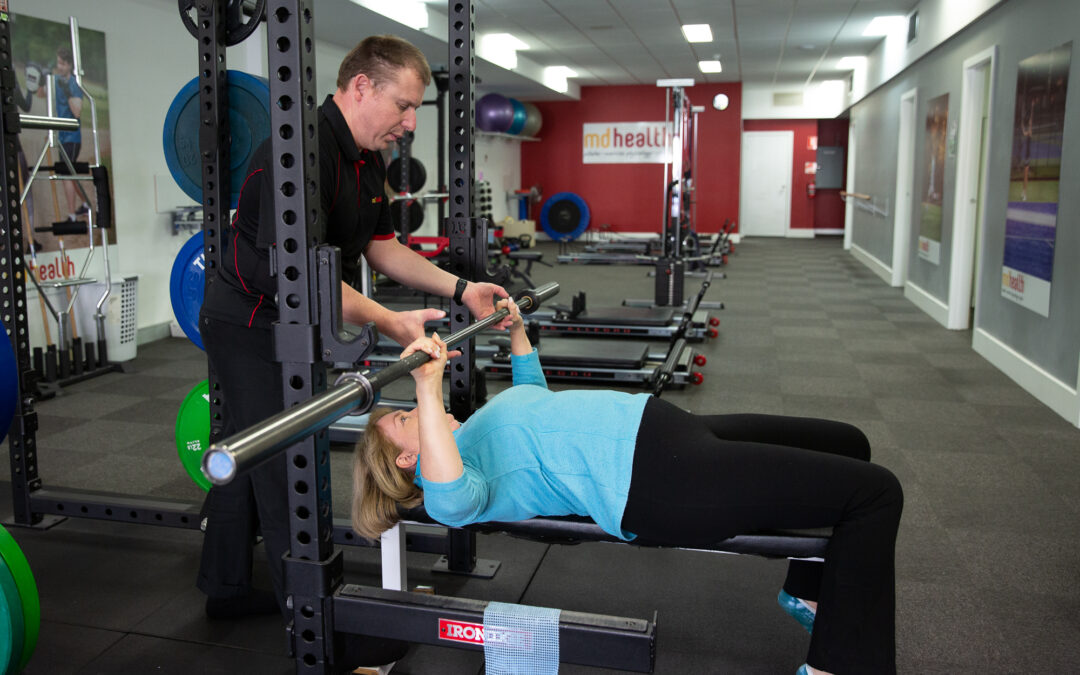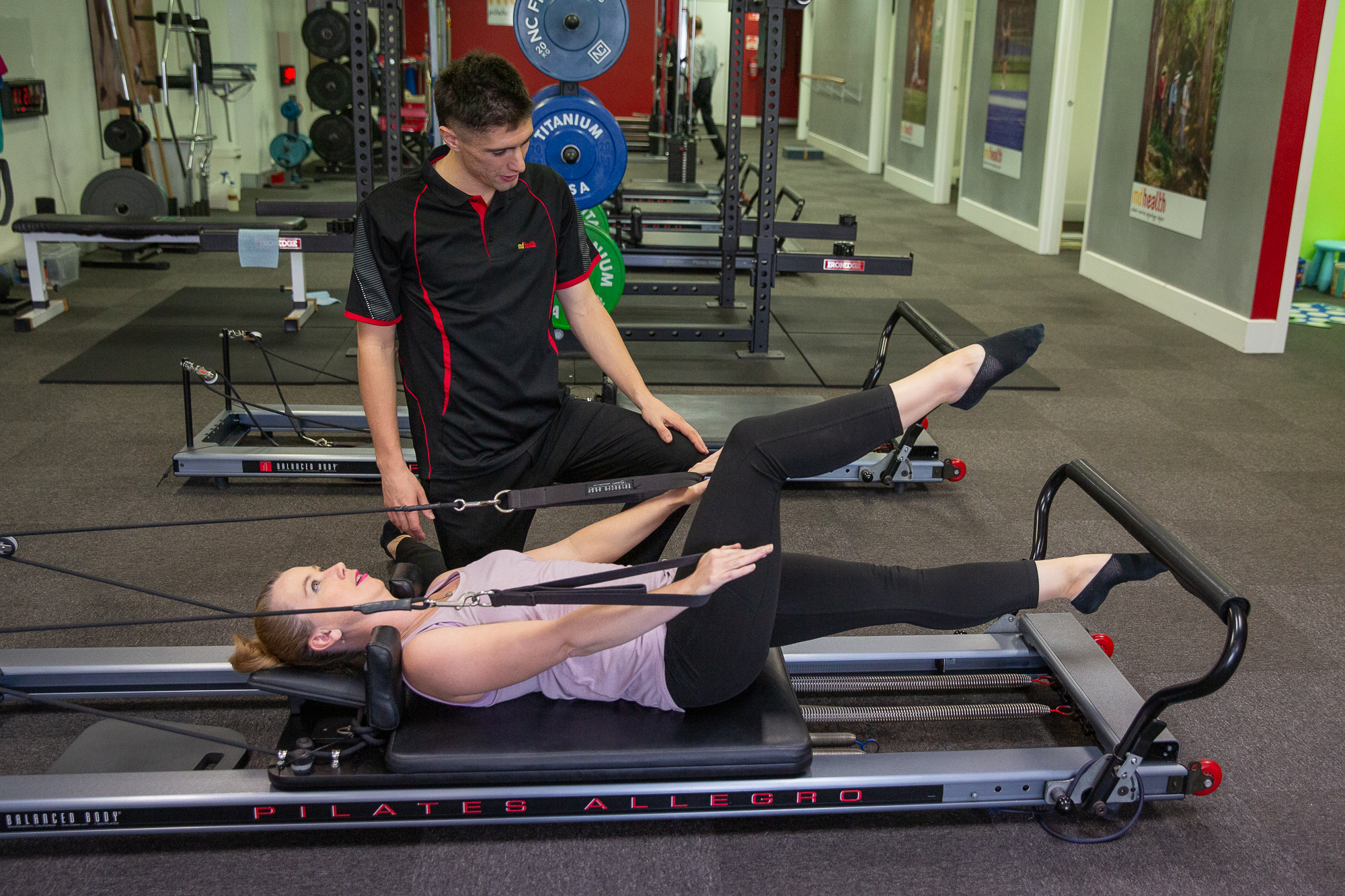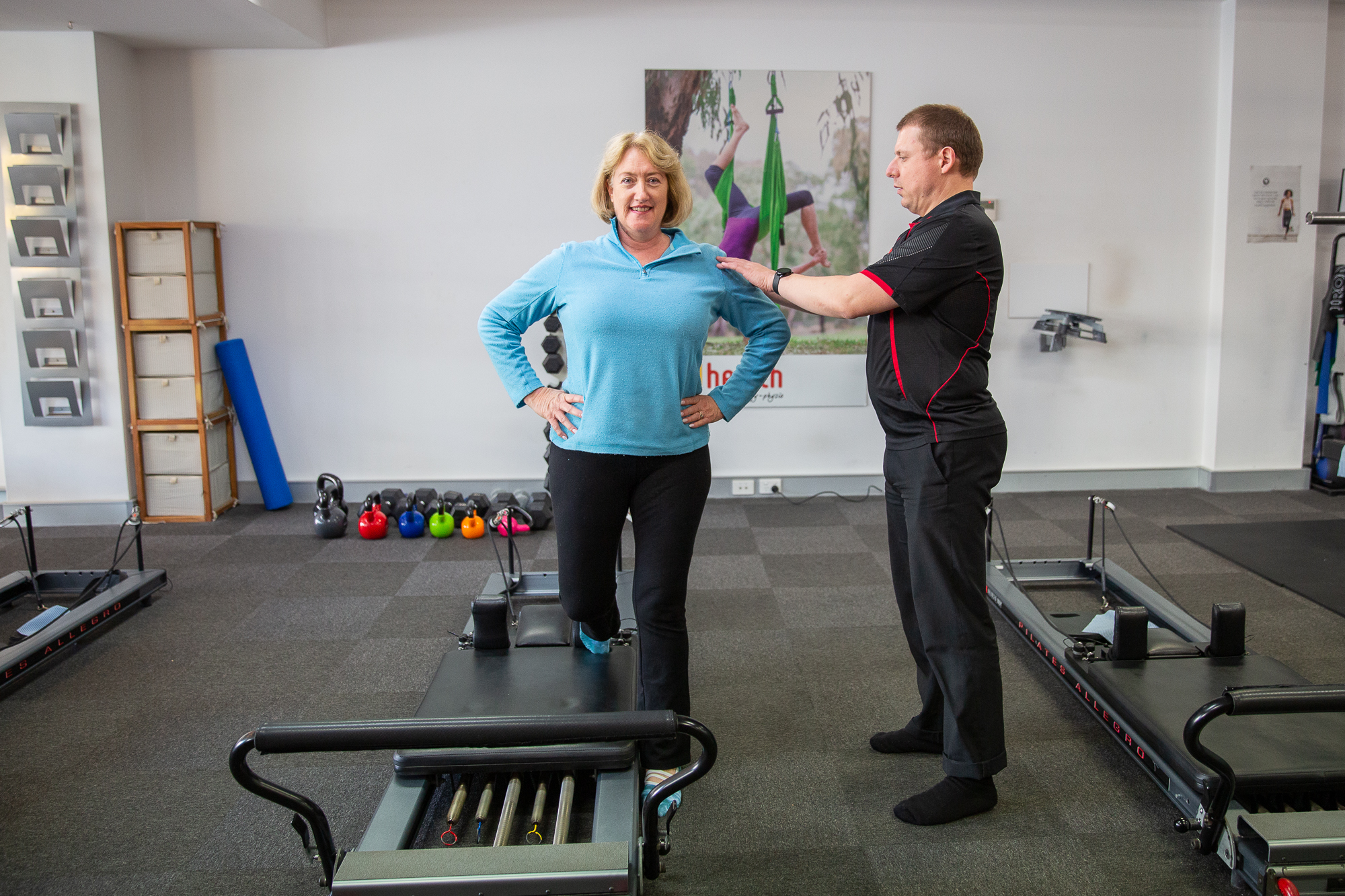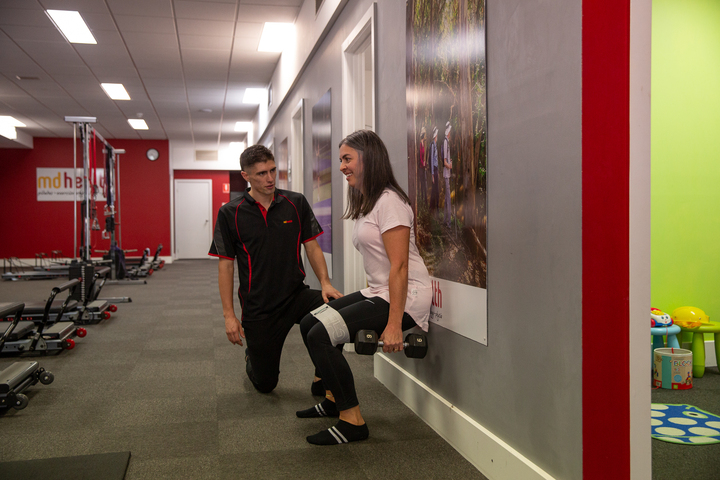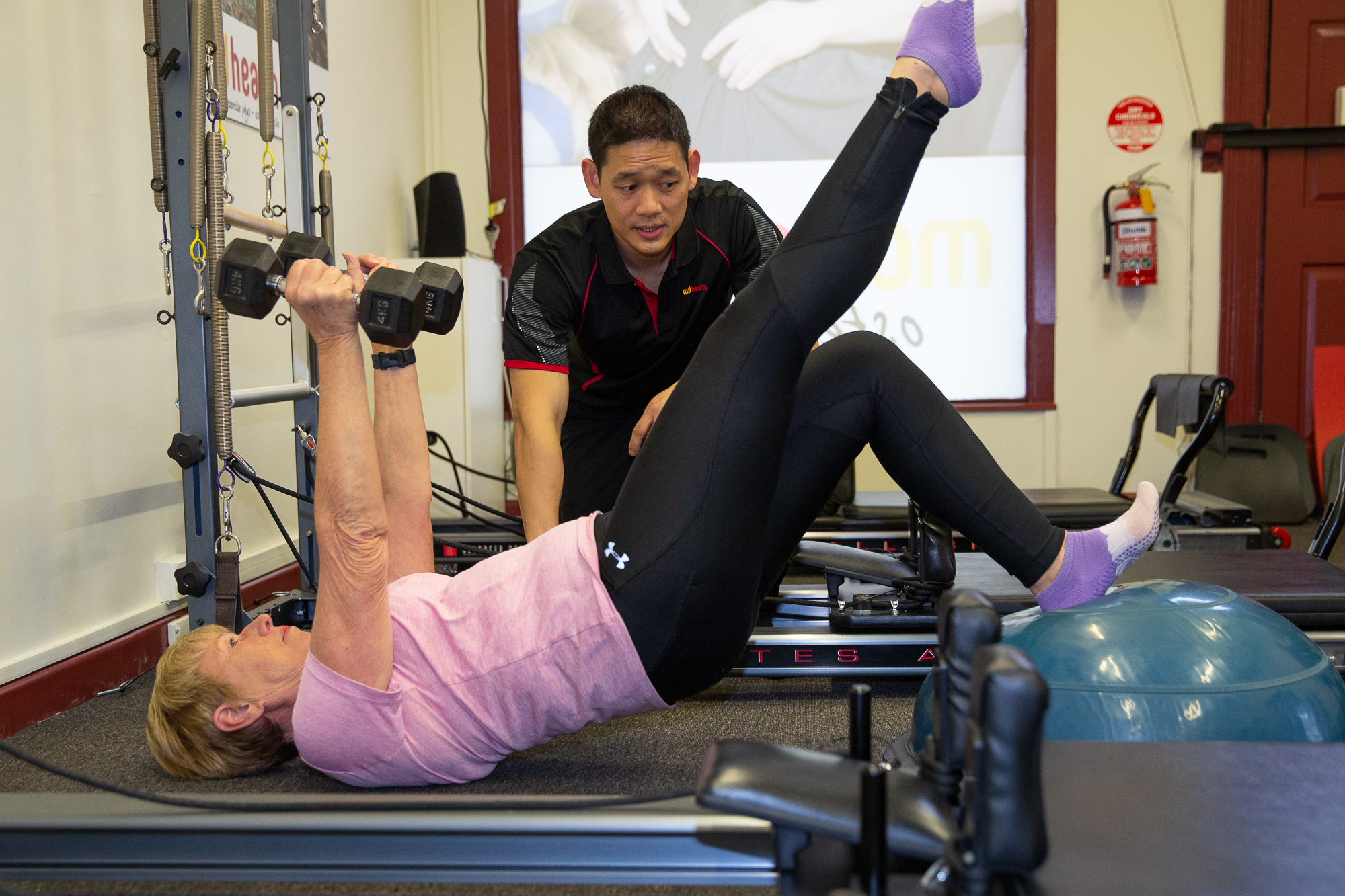Pilates continues to gain popularity as an effective workout program for boosting muscle tone, core stability, and control of the spine, hips, and pelvis. However, clinical Pilates has taken that one step further by incorporating the expertise of physiotherapists and other health professionals like exercise physiologists and osteopaths. This personalised approach ensures that each exercise is specific to the individual’s needs, leading to even greater results.
But is there equipment in Pilates that can enhance the effectiveness of the program? Absolutely! although anyone can start Pilates with just a mat and your own body weight, adding specific Pilates equipment can take your workout to another level.
Let’s start with the signature piece of equipment: The Pilates reformer
The Pilates reformer is the piece of equipment that almost everyone associates with Pilates. But what makes it so essential?
FUN FACT: The concept of the Pilates reformer dates back to World War II, when Joseph Pilates used hospital bed springs as resistance to help rehabilitate patients.
The reason the Pilates reformer works so well is because it matches the way your brain works in learning new tasks and mastering movement.
- Task-oriented exercises – When you exercise on the reformer you are usually pushing or pulling the carriage either directly or through the arm handles. While your brain might struggle to memorise movements, it excels at learning tasks, making these exercises easy to remember and master.
- Resistance-based workouts – The reformer uses springs of varying resistance and colours to create load. When you push the carriage of the reformer, the resistance not only challenges the muscles, forcing them to adapt, but also enhances joint pressure, enabling joint sensors to relay a clearer mental picture to the brain for faster and more effective learning.
- Balance component: Many reformer exercises incorporate balance. For instance, standing next to the reformer and pushing the carriage requires stabilisation on the standing leg and force from the opposite side. This controlled challenge helps improve balance without overwhelming the brain.
What about resistance bands?
Adding resistance bands to your Pilates regimen opens up new possibilities for targeting muscle groups that may not be as effectively engaged by the reformer.
For example, resistance bands are highly effective in strengthening the hip stabilisers, particularly the gluteus medius muscles. These muscles are crucial for side-to-side hip stability. When walking, you spend around 80% of the time on one leg, so these muscles must keep your pelvis level as you shift weight.
Approximately 25% of women over 50 experience issues with these muscles, often due to a combination of weakness and change in estrogen levels that affect tendon health.
Resistance bands offer an affordable, versatile way to strengthen these areas. They’re also great for working on the shoulder stabilisers, like the rotator cuff muscles, adding depth to your Pilates program without a significant investment.
Who says Pilates and weights don’t mix?
Adding weights to your Pilates program allows you to increase resistance when you’ve reached the limits of what traditional Pilates equipment can offer.
Weight training and resistance based exercises are vital for maintaining muscle mass, boosting bone density, and supporting overall health, including functional strength and the management of metabolic conditions like insulin resistance. By incorporating weights, your workouts remain challenging, ensuring your body continues to grow, adapt, and improve every day from your Pilates program.
Do you have any questions?
Call us on (03) 9857 0644 or (07) 3505 1494 (Paddington)
Email us at admin@mdhealth.com.au
Check out our other blog posts here
Our clinical staff would be happy to have chat if you have any questions.
Take the first step to a healthier you!
Would you prefer for someone to contact you regarding booking your Initial Physiotherapy appointment, Initial Exercise Physiology, Initial Osteopathy session or FREE Full Body Assessment*?
Or do you have any other enquiry about our services at MD Health?
Please fill in this form and someone from MD Health will be in touch with you soon.
Alternatively please call us on 03 9857 0644 (Kew East), 03 9842 6696 (Templestowe), 03 8683 9442 (Carlton North) or 07 3505 1494 (Paddington) to book now!
For all new clients who wish to come in for a one-off, casual or adhoc basis for Physiotherapy or Exercise Physiology the Initial Physiotherapy or Initial Exercise Physiology appointment is a paid service.
** The 13 Week Clinical Pilates Program at MD Health is not a lock in contract and you are not required to attend for the full 13 weeks if you do not wish.
Get In Touch

